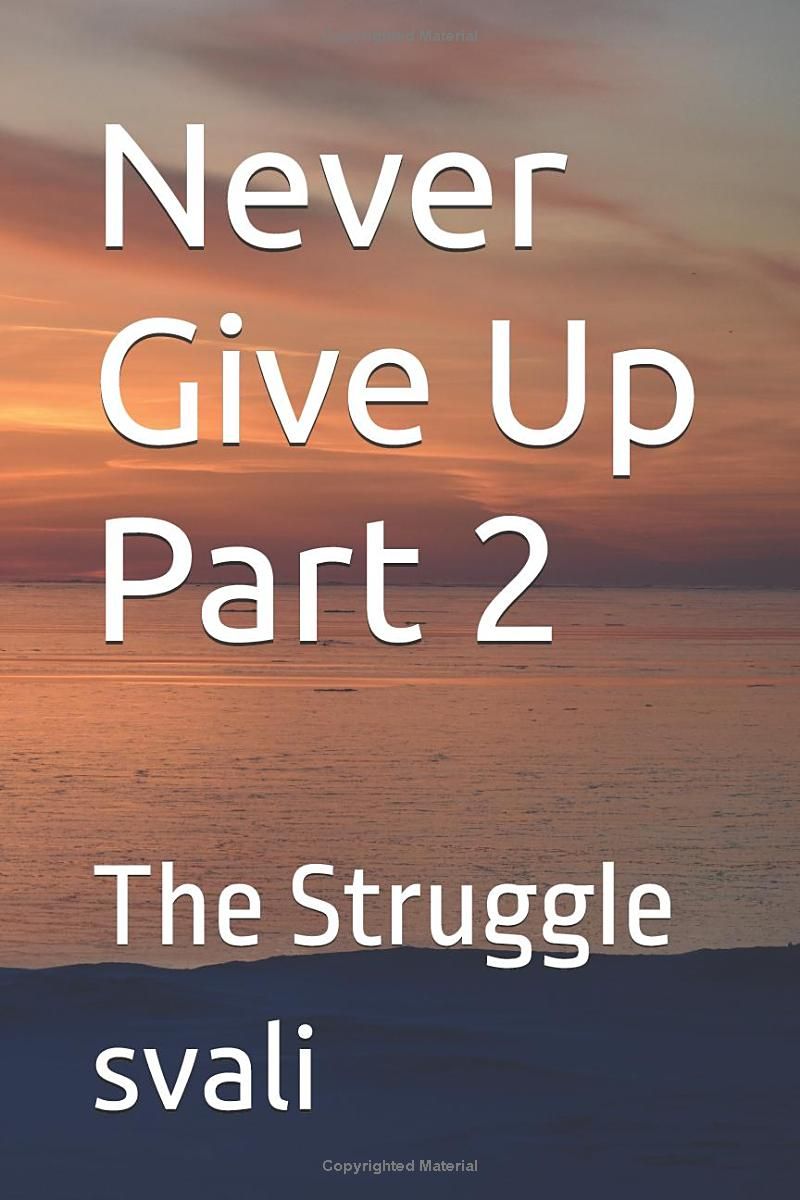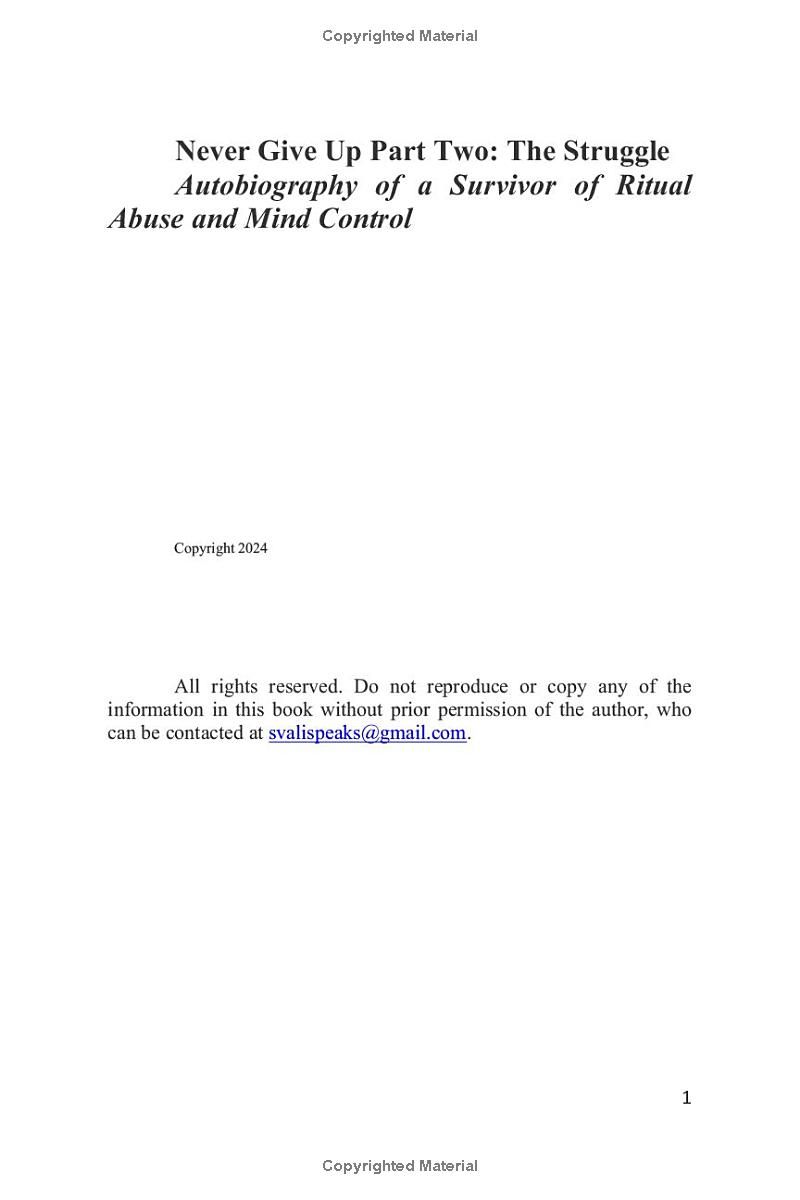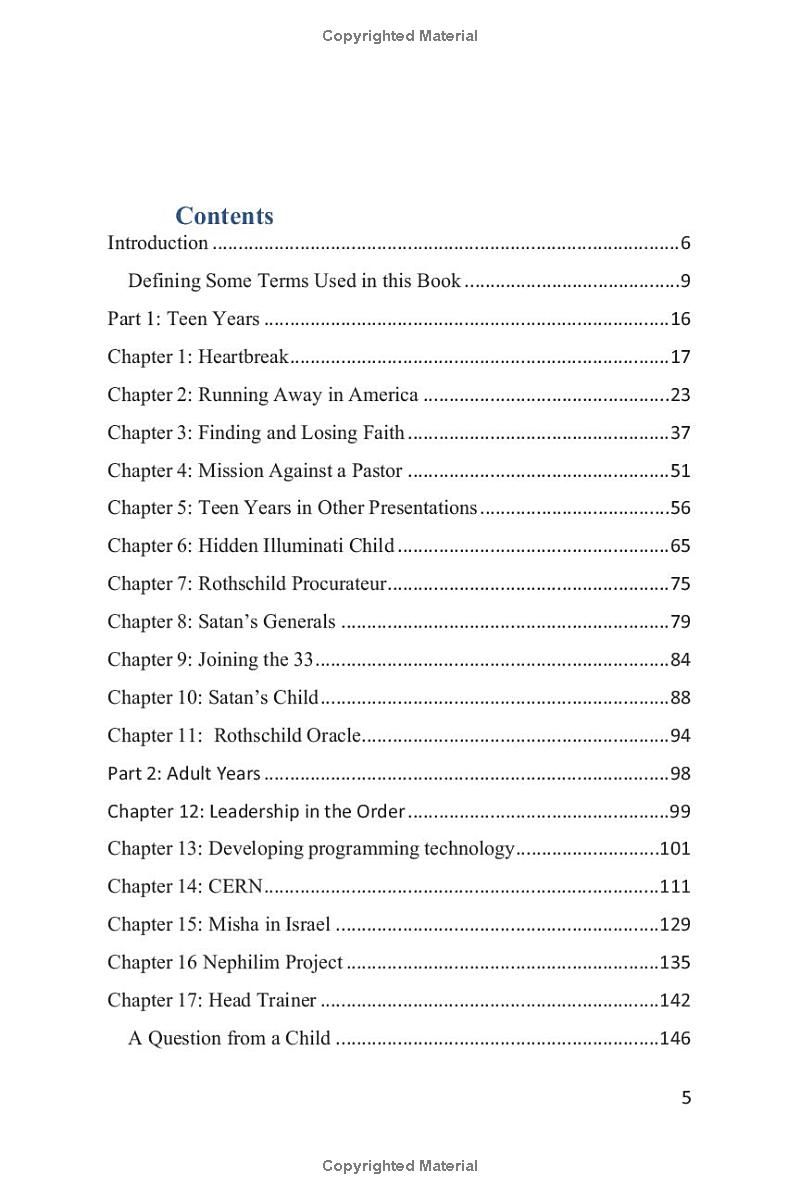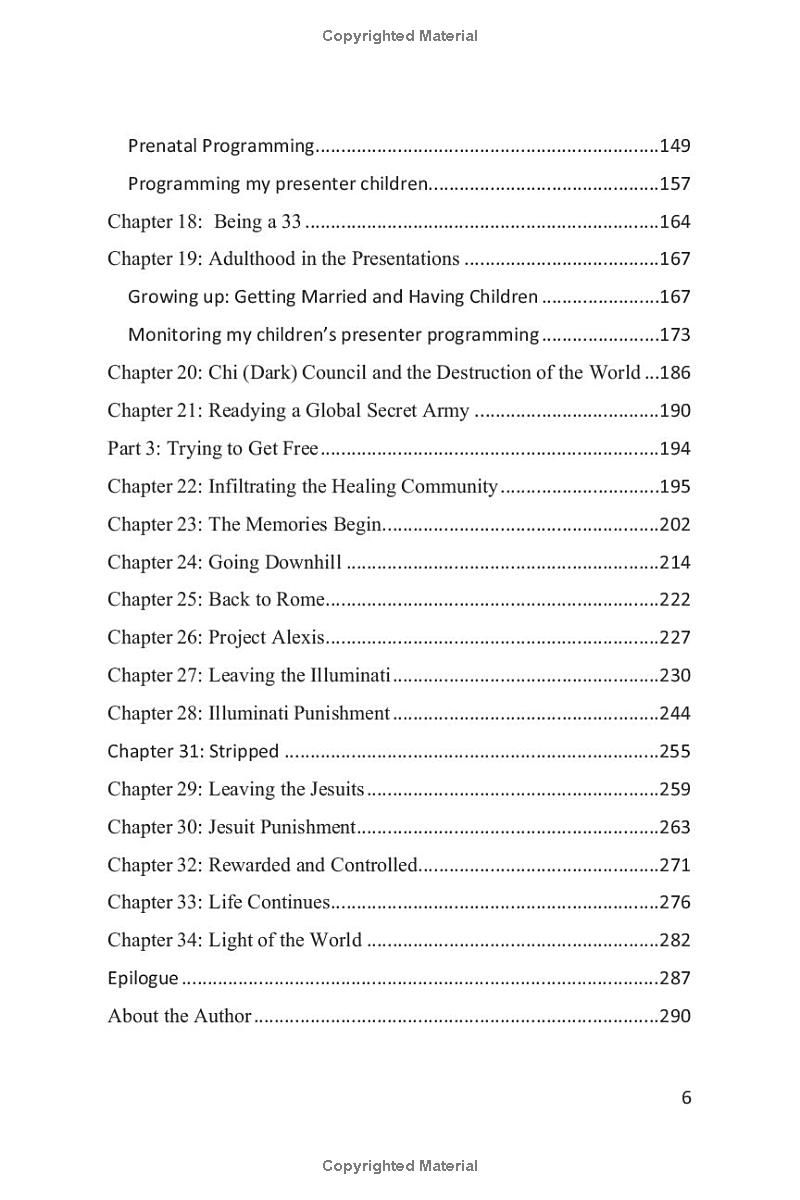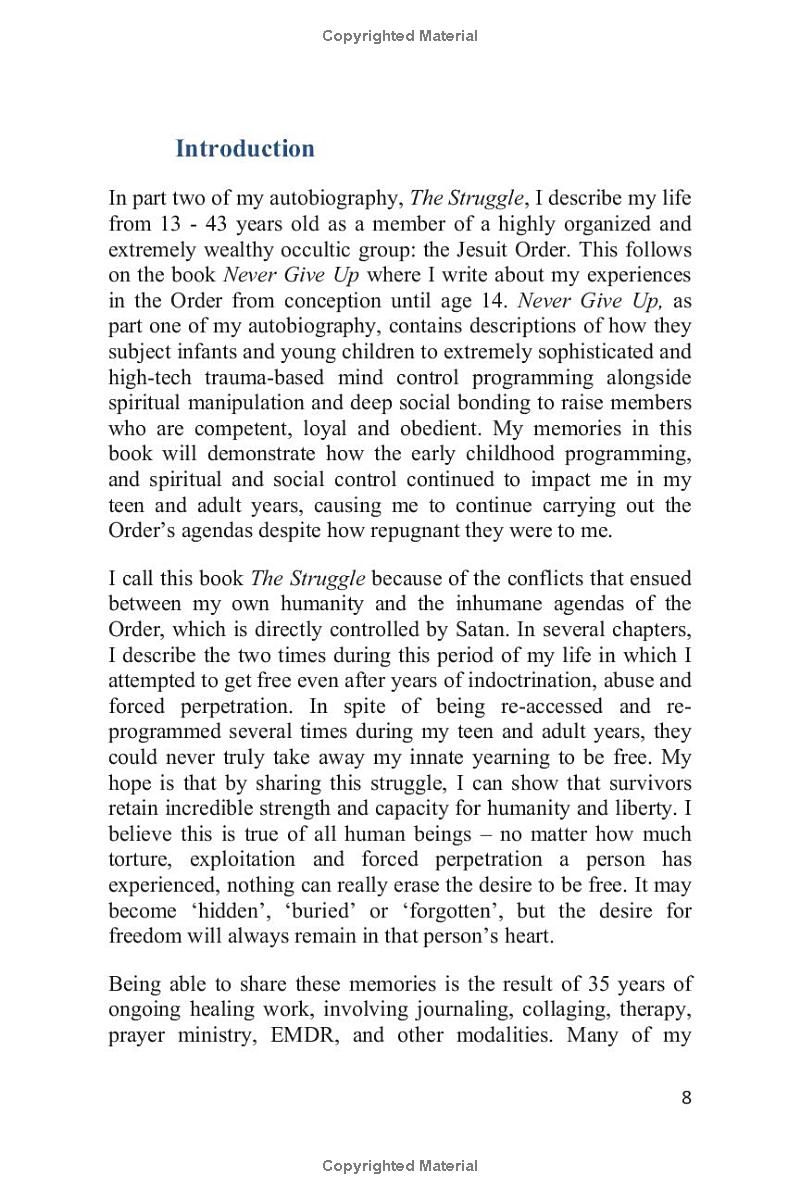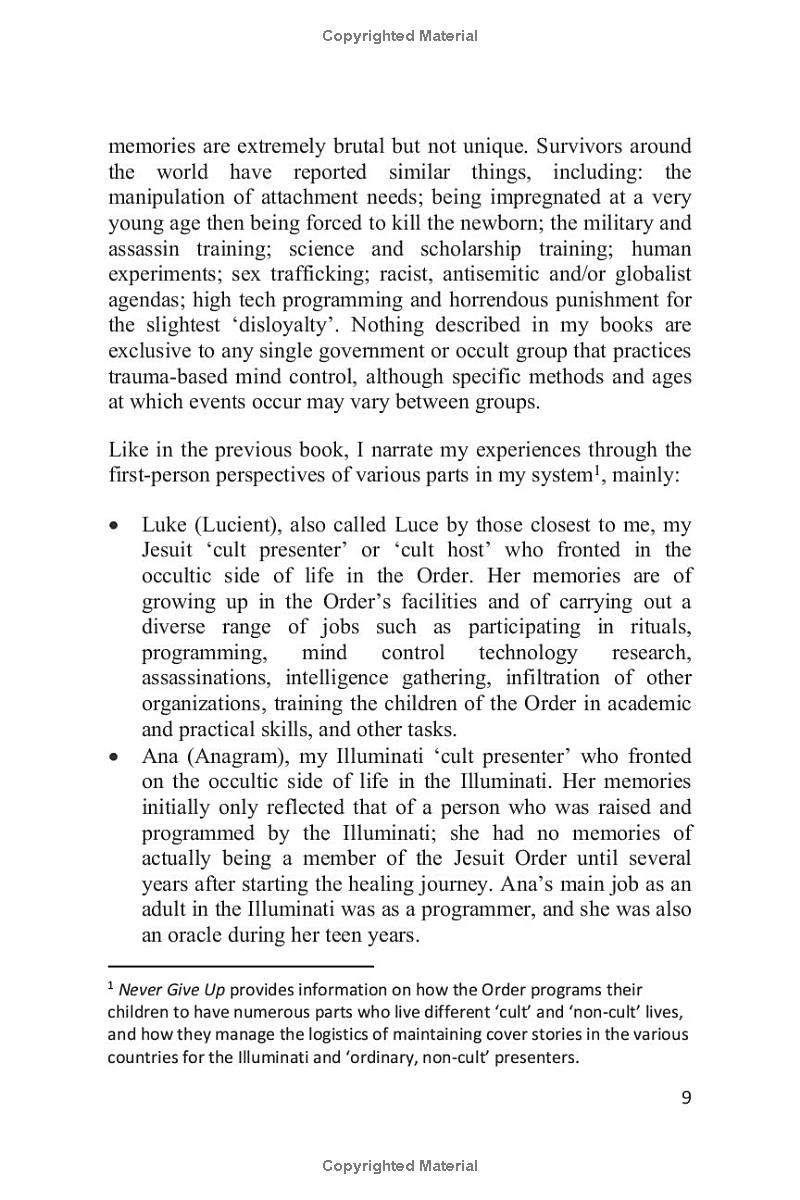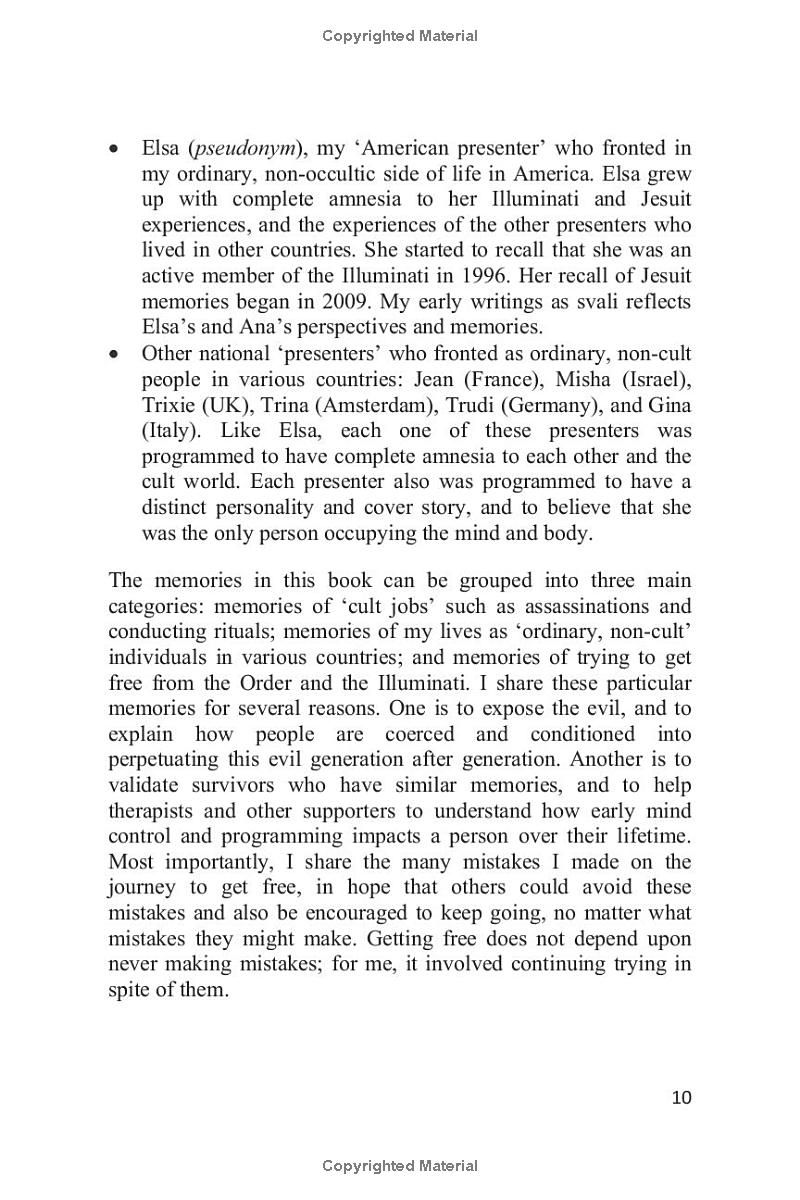Never Give Up Part 2: The Struggle, the second installment in Svali's harrowing autobiographical trilogy, plunges deeper into the author's experiences as a survivor of ritual abuse and mind control within a sophisticated occult group, the Jesuit Order. This unflinching account chronicles Svali's life from age 13 1/2 to 43, detailing her harrowing attempts to escape the cult's grasp, her evolving roles within the system, and the lasting effects of years of programming. The book graphically depicts the manipulation and trauma endured, offering a chilling perspective on the long-term consequences of such abuse. Ultimately, it culminates with the birth of an individual identified by the Jesuits as "the Light of the World," leaving the reader with a profound understanding of Svali's resilience and the complexities of escaping such a powerful organization.
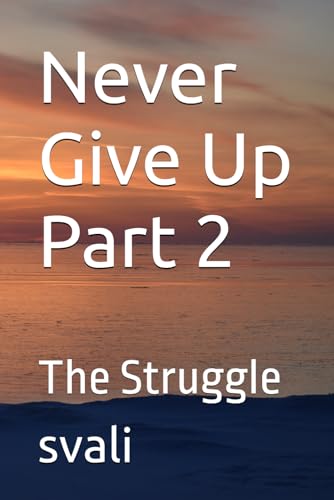
Review Never Give Up Part 2
Reading "Never Give Up Part 2: The Struggle" was a deeply impactful experience. Svali's unflinching honesty and courage in sharing her story are truly awe-inspiring. This book isn't just a memoir; it's a testament to the resilience of the human spirit and a chilling exposé of the systematic abuse perpetrated by powerful, organized groups. The level of detail Svali provides, while undeniably graphic at times, is essential to understanding the pervasive and long-lasting effects of trauma-based mind control. She doesn't shy away from the darkest aspects of her experiences, and that vulnerability makes her narrative all the more compelling and relatable, even for those who haven't endured similar horrors.
What struck me most was the sheer tenacity Svali displays throughout her journey. Her repeated attempts to escape the cult, despite facing seemingly insurmountable obstacles, are a powerful illustration of unwavering determination. The book meticulously traces the insidious ways in which the programming continued to affect her life even after her initial escape, highlighting the complex and often invisible challenges faced by survivors of such abuse. Svali’s detailed account provides invaluable insights into the psychological manipulation employed by these groups, illuminating the ways in which they erode an individual's sense of self and control.
While the subject matter is heavy and disturbing, Svali's narrative is surprisingly hopeful. Her journey is not just a story of suffering; it's a story of healing, growth, and ultimately, triumph over adversity. The birth of "the Light of the World," as described in the book's conclusion, offers a poignant symbol of hope and rebirth, suggesting the potential for transformation even in the face of unimaginable pain. The book is carefully organized, making it easier to follow than many other accounts of similar trauma, which greatly increases its accessibility and impact.
Beyond its personal significance, "Never Give Up Part 2: The Struggle" serves as a valuable resource for anyone seeking to understand the complexities of trauma, mind control, and the long road to recovery. It's a must-read for survivors, therapists, researchers, and anyone interested in learning more about the dark underbelly of power and the enduring strength of the human spirit. Svali’s bravery in sharing her story is a gift, offering hope, understanding, and a roadmap for navigating the difficult path towards healing. It’s a powerful reminder that even in the deepest darkness, the light of resilience and hope can prevail. The book’s message is ultimately one of empowerment: a testament to the power of perseverance, the importance of seeking help, and the enduring strength of the human spirit in the face of unimaginable adversity.
Preview Book
